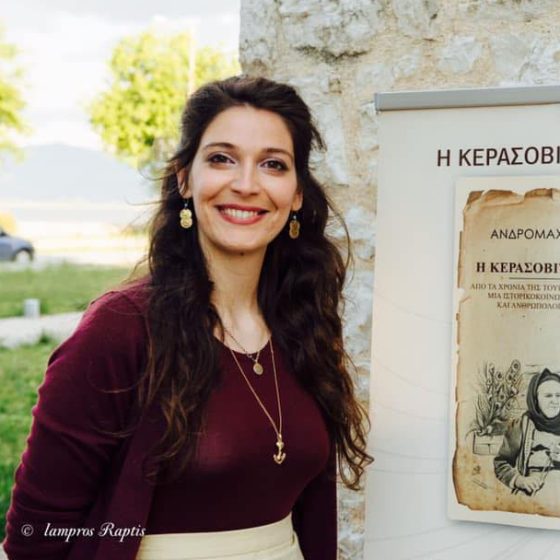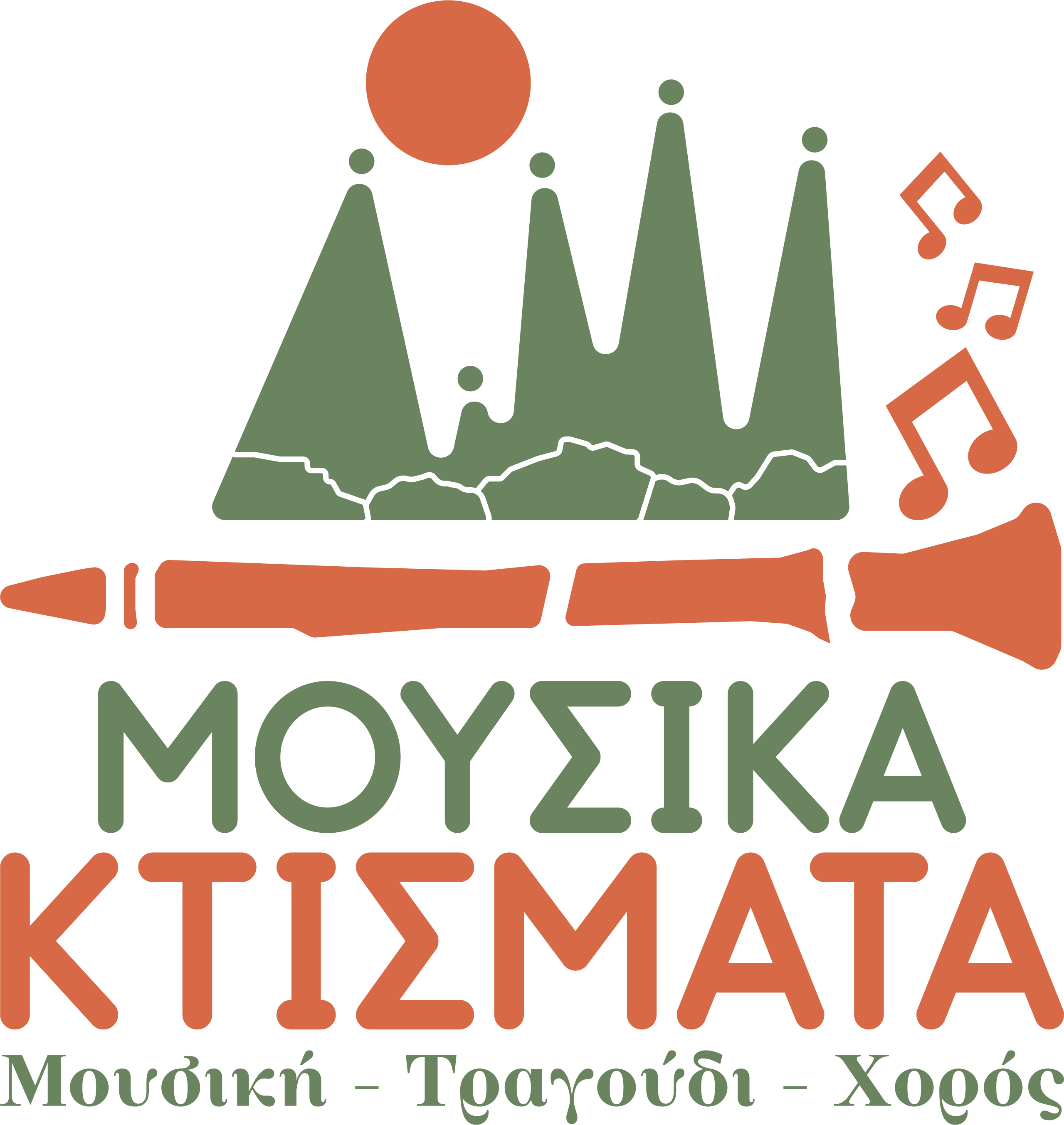
Andromachi Bouna-Vaila
Traditional Dances from Konitsa, Dance Workshop Coordinator – Andromachi Bouna-Vaila
Description
The dances of Konitsa carry the memory and identity of a land situated at a crossroads of cultures. They are characterized by grandeur, weight in the steps, slow movements, and strict formation—elements that highlight the pride and introspection of its people. Unlike other regions of Epirus, where lighter forms prevail, in Konitsa dance becomes a deeply experiential and almost ritualistic act.
In the workshop, we will work on characteristic dances of the area, focusing on style, formation, and rhythmic precision. We will also explore the role of the lead dancer, the dynamics of the circular formation, and the relationship between music and movement.
The seminar is intended for both dancers and dance instructors who wish to deepen their understanding of the unique dance tradition of Konitsa.
Biography
Andromachi Bouna-Vaila is deeply dedicated to preserving and promoting Greek music and dance traditions, with a special focus on Epirus. She is a member and dance director of the Lyceum Club of Greek Women of Ioannina and has been part of its dance group for 30 years. With extensive experience, she has served as a judge at dance festivals and has contributed actively to scientific committees evaluating scholarly articles and journals related to dance.
She also organizes dance workshops focusing on the traditional dances of Epirus, particularly those from the villages of Konitsa, helping to preserve and teach this unique cultural heritage. As a dance instructor for nearly 10 years, she has taught dance groups in Epirus and Epirote associations in Attica, consistently and passionately passing on her knowledge and love for Greek dance to younger generations.
She currently teaches at the University of Western Macedonia and serves as the Scientific Director at the Hosting Center for Unaccompanied Minors in Pentalofos, Municipality of Voio.
She studied Social Anthropology and History at the University of the Aegean and holds two master’s degrees and a PhD in the field of “Sociology of Education and Gender” from the University of Ioannina.
Her research and teaching work is extensive, covering 17 courses in Sociology, Pedagogy, and Psychology at both undergraduate and postgraduate levels at Democritus University of Thrace, the University of West Attica, the University of Thessaly, Aristotle University of Thessaloniki, University of Western Macedonia, and the University of the Aegean over five academic years. She has also taught in numerous postgraduate, vocational training, and lifelong learning programs.
She has participated in six research projects, three of them as a postdoctoral researcher, focusing on gender identities, gender-based violence, mental health, discrimination, and school inclusion, using qualitative research methods.
Her numerous scientific publications address topics such as gender identities, gender-based violence, homophobia, gender discrimination, bullying, and inequality. She has also been involved in various scientific and organizing committees for academic conferences.
Her professional and social activities focus on human rights, gender equality, gender-based violence, and diversity. She has served as a citizen expert on the Gender Equality Committee of the Municipality of Ioannina, a governing board member of the European Young Women’s Volunteer Organization, a jury member for the Diversity & Inclusion Awards, president of the Sociologists’ Association of Ioannina, and a board member of the Lyceum Club of Greek Women of Ioannina.
The tradition of Epirus is being revived through a new series of traditional dance workshops aiming to highlight the diverse musical and dance expressions of each region. Structured around the geographic and cultural diversity of Epirus, each workshop will focus on a specific area, exploring its dance tradition through steps, rhythms, music, and philosophy. Instructors with deep knowledge of tradition will guide participants on a journey across Epirus, showcasing local particularities and the richness of diverse dance approaches. The series is aimed at dancers, researchers, and lovers of Epirote tradition, offering a unique opportunity to understand the region’s musical and dance diversity and to experience its richness through teaching and practice.



